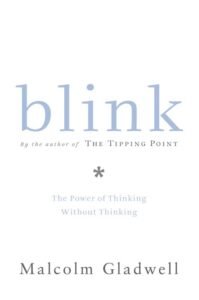|
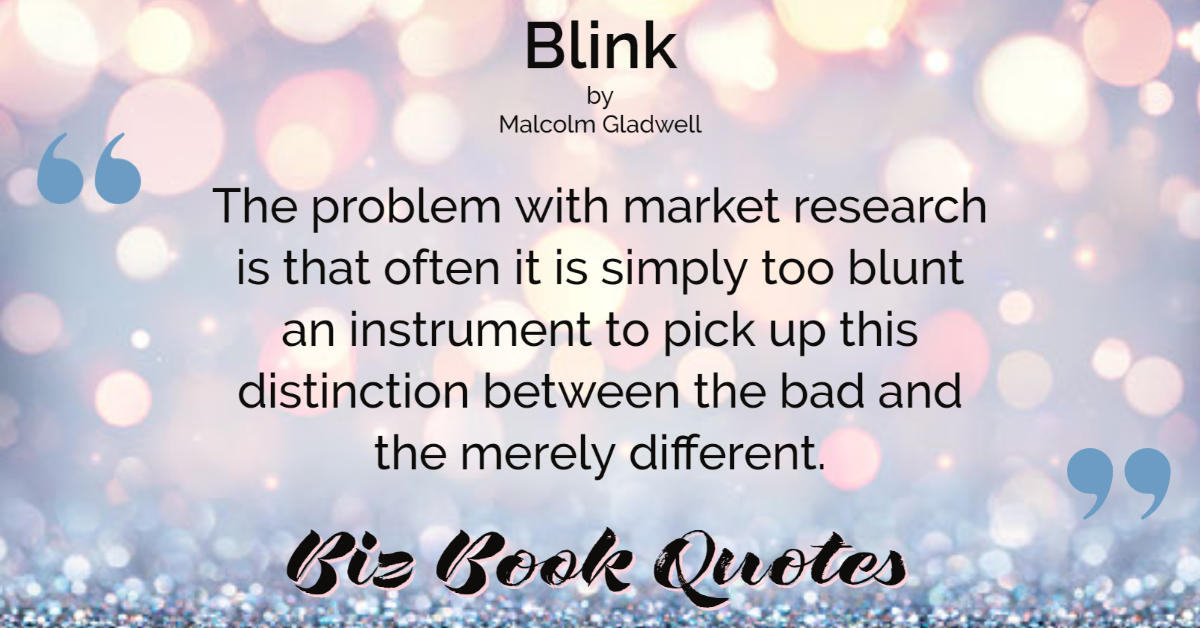
|
Blink:
The problem with market research is that often it is simply too blunt an instrument to pick up this distinction between the bad and the merely different.
|
174 |
|
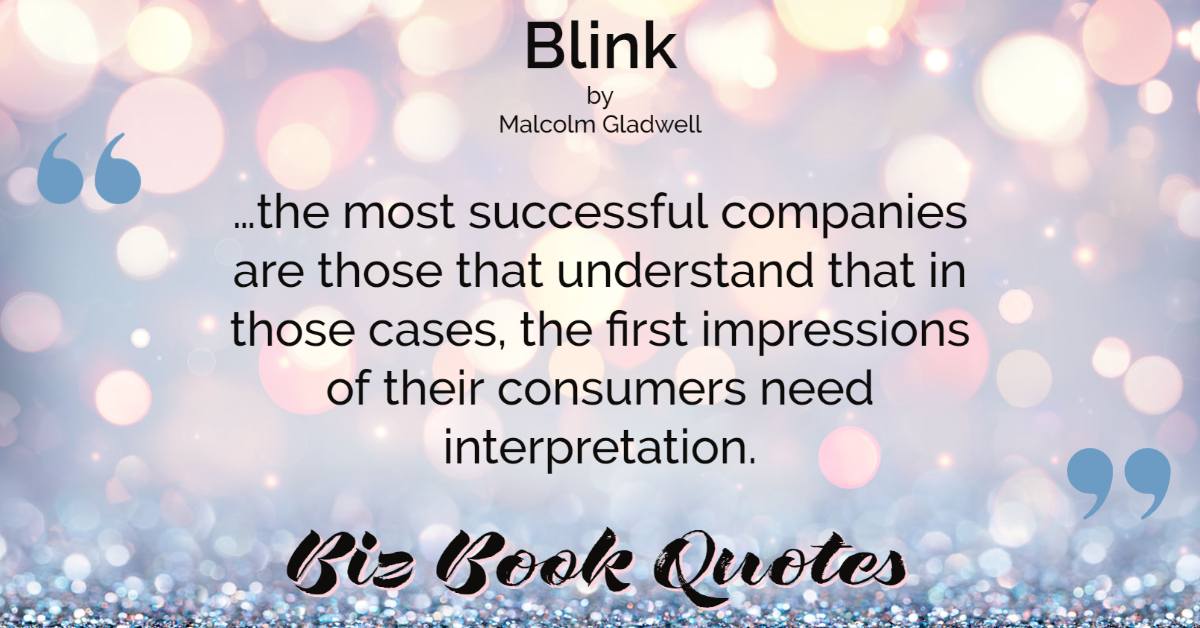
|
Blink:
…the most successful companies are those that understand that in those cases, the first impressions of their consumers need interpretation.
|
176 |
|
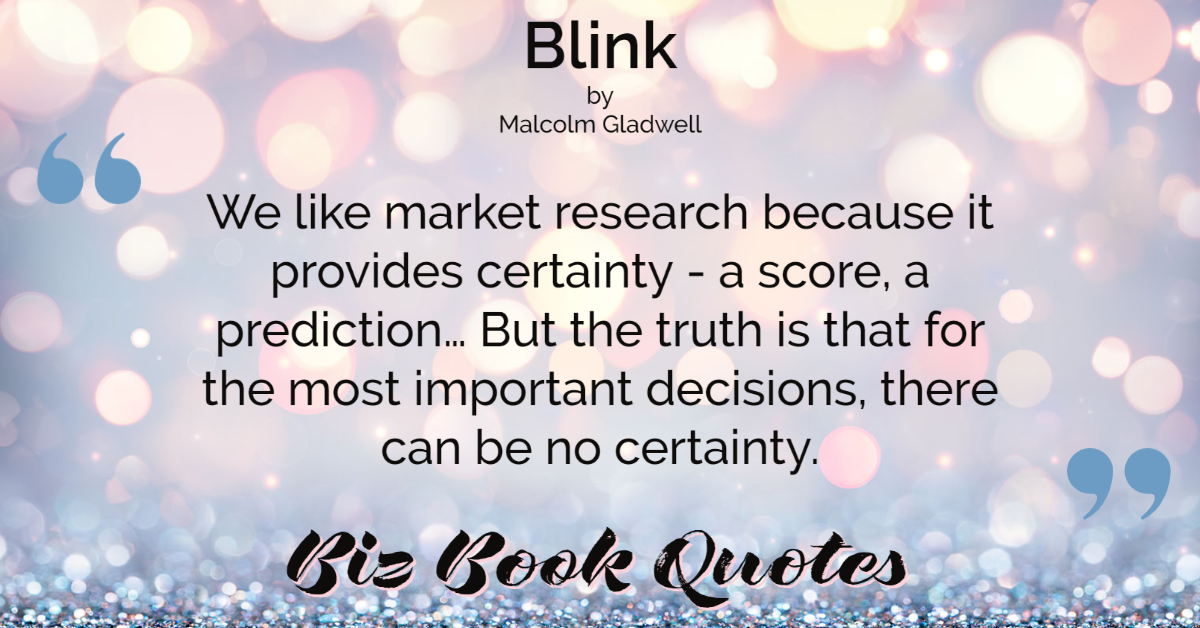
|
Blink:
We like market research because it provides certainty – a score, a prediction… But the truth is that for the most important decisions, there can be no certainty.
|
176 |
|
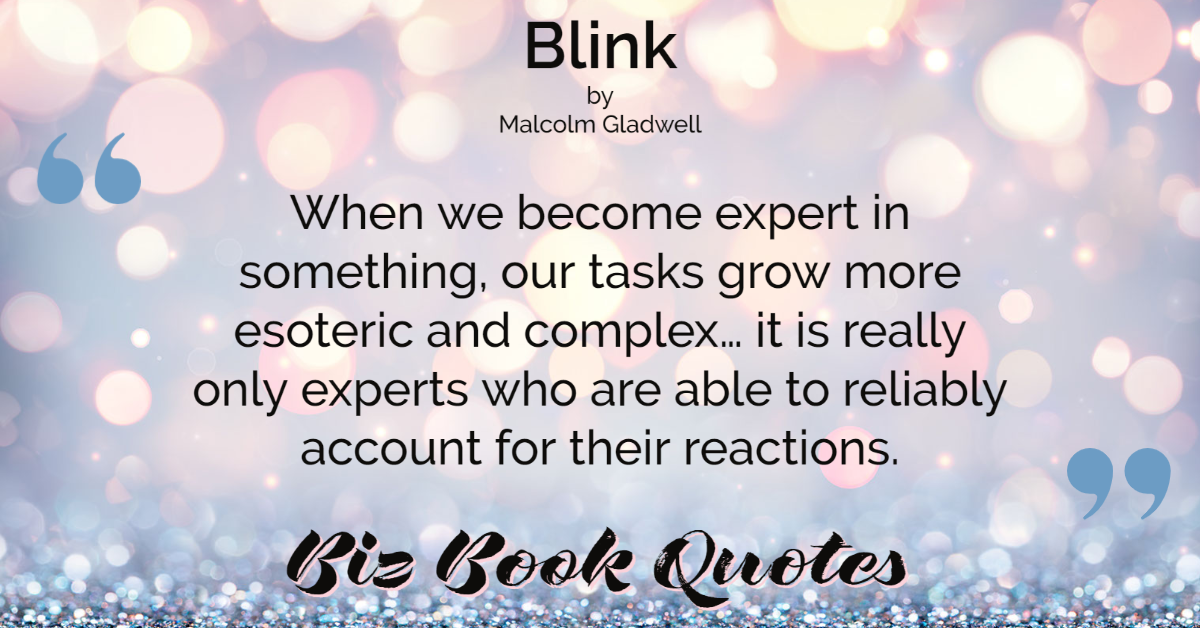
|
Blink:
When we become expert in something, our tasks grow more esoteric and complex… it is really only experts who are able to reliably account for their reactions.
|
179 |
|
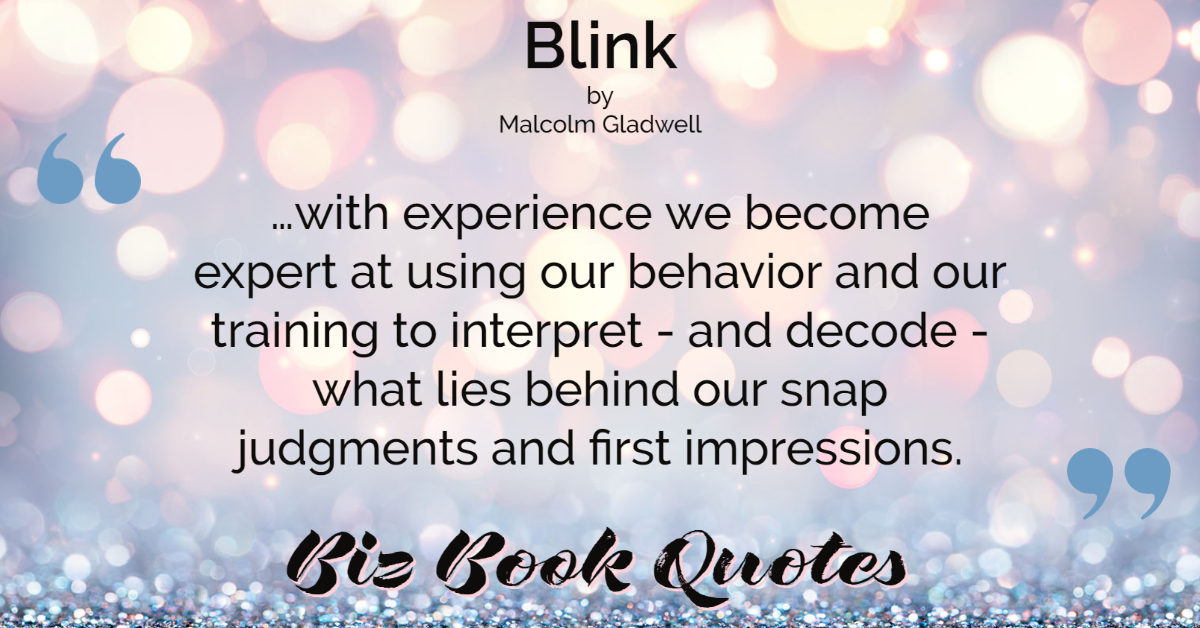
|
Blink:
Overloading the decision makers with information… makes picking up that signature harder, not easier. To be a successful decision maker, we have to edit.
|
183 |
|
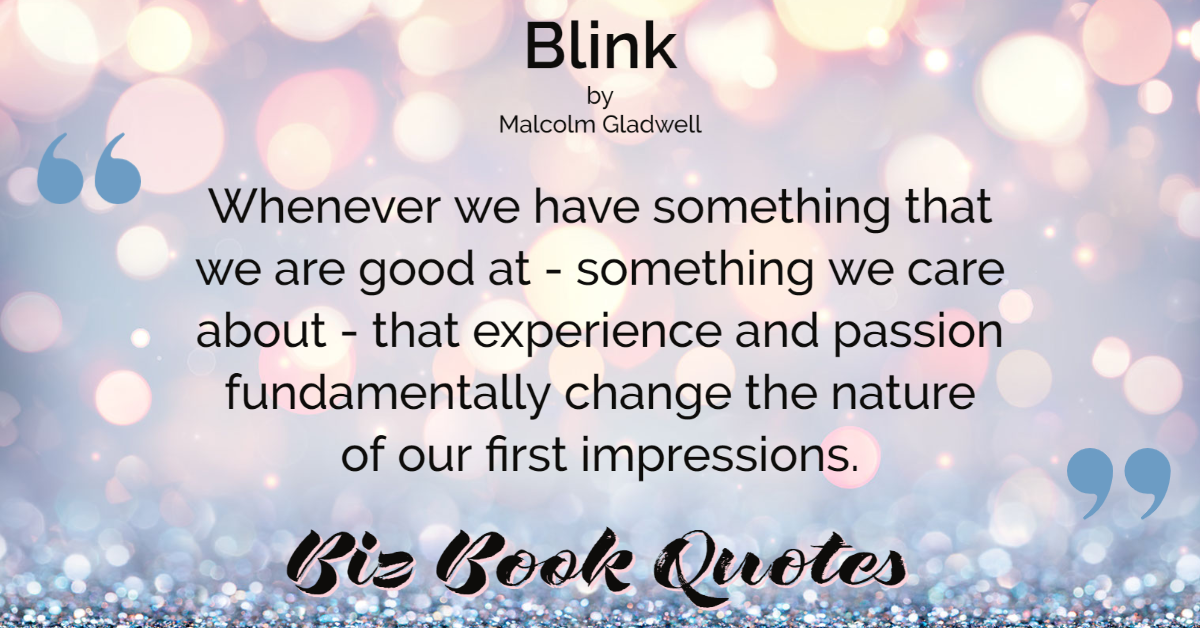
|
Blink:
Whenever we have something that we are good at – something we care about – that experience and passion fundamentally change the nature of our first impressions.
|
184 |
|
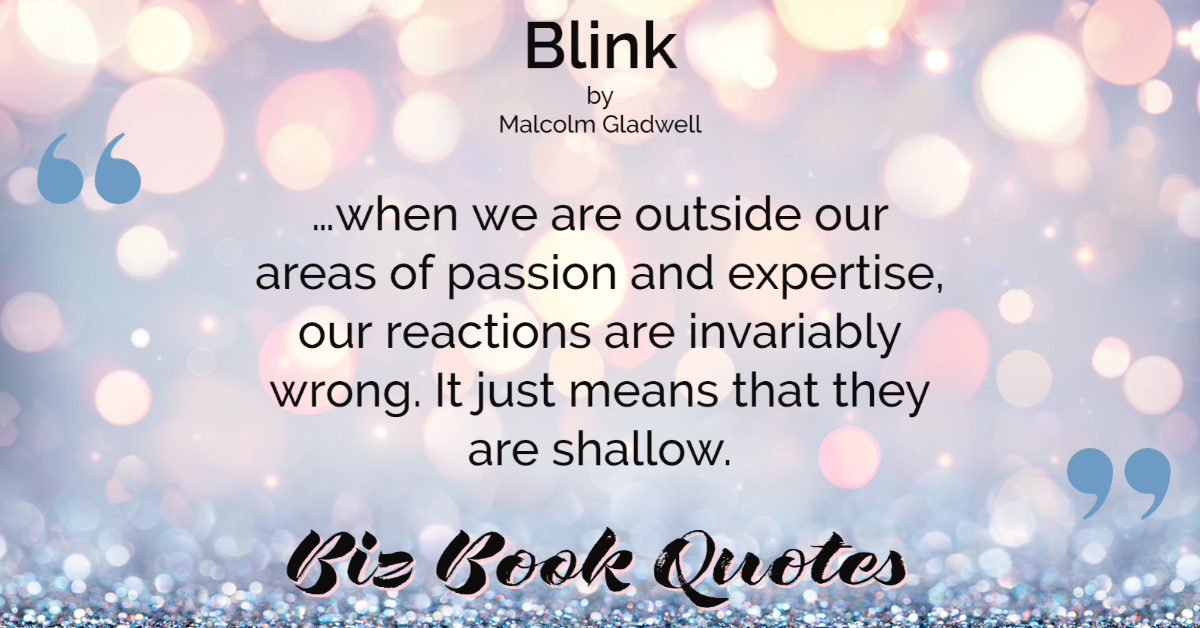
|
Blink:
…when we are outside our areas of passion and expertise, our reactions are invariably wrong. It just means that they are shallow.
|
184 |
|
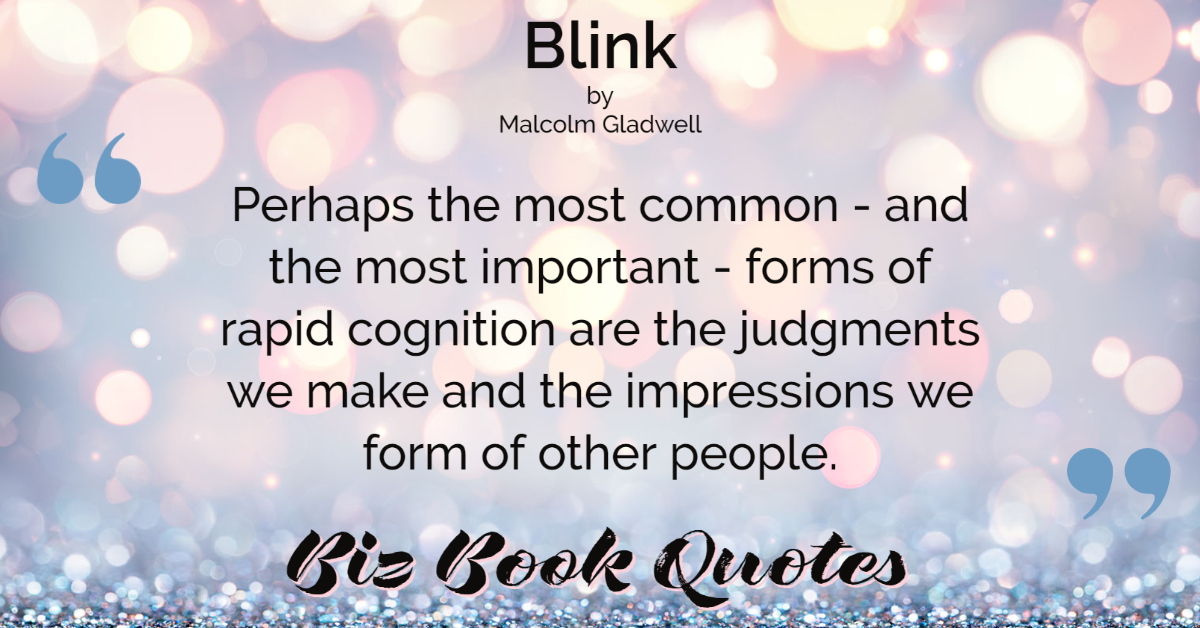
|
Blink:
Perhaps the most common – and the most important – forms of rapid cognition are the judgments we make and the impressions we form of other people.
|
194 |
|
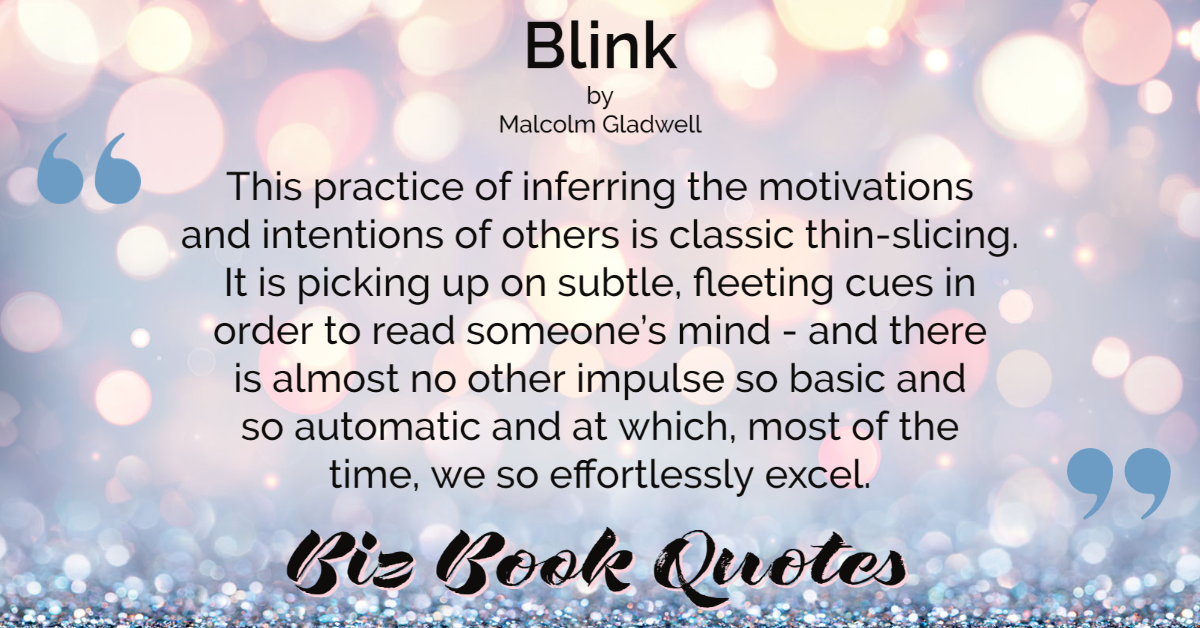
|
Blink:
This practice of inferring the motivations and intentions of others is classic thin-slicing. It is picking up on subtle, fleeting cues in order to read someone’s mind – and there is almost no other impulse so basic and so automatic and at which, most of the time, we so effortlessly excel.
|
195 |
|

|
Blink:
Mind-reading failures happen to all of us. They lie at the root of countless arguments, disagreements, misunderstandings, and hurt feelings.
|
196 |
